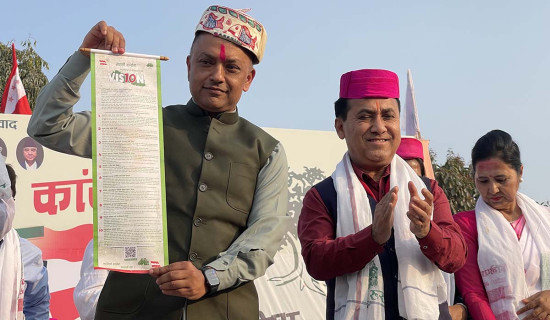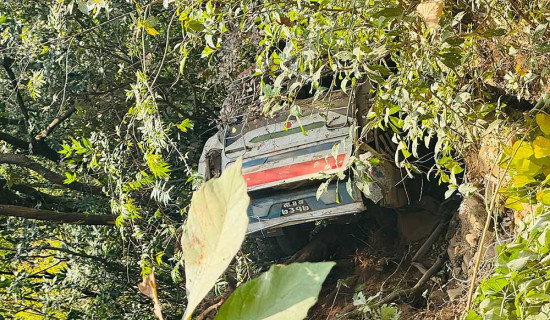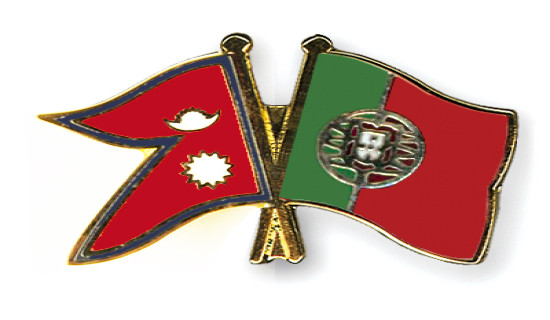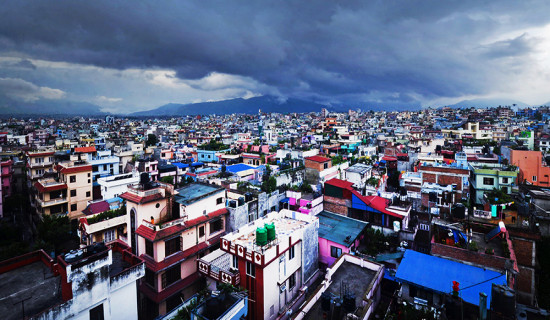- Thursday, 19 February 2026
Nepal’s Economy More Stable Than Sri Lanka
Namrata Sharma,
The people all over Nepal have now started storing grains and pulses as the prices of daily necessities are skyrocketing. The fuel prices have been increasing steadily since the Ukraine war. Because of the financial crisis in Sri Lanka which is similar to that of Nepal, the people in Nepal are perhaps more alarmed than necessary. But is there a need to fear that Nepal will face an economic and financial crisis soon?
According to Nepal Rastra Bank, the foreign currency reserves in the country have fallen by more than 16 percent to Rs 1,17 trillion, which amounts to US $9.59 billion in the seven months till mid-February 2022. NRB also states that over the same period, the amount of money sent to Nepal by people working abroad fell by almost 5 percent.
The fact that Sri Lanka saw a drop of 70 percent in foreign reserves since January 2020, could be an alarm bell for Nepal as the above-mentioned drop of 16 percent mentioned by NRB is data for 7 months.
Import restriction
The NRB has accepted that the country’s foreign currency reserves were under pressure. Keeping this in mind, the government has recently restricted imports of non-essential goods like cars, cosmetics, and gold. The government is now restricting the purchase of non-essential goods without affecting the supply of essential goods. By discouraging the import of non-essential goods at a time when the overall economic activities have seen a slump due to the coronavirus pandemic, the government has made a smart move.
The Nepali people should now prioritize their needs and should adopt the habit of purchasing locally manufactured goods and consuming local foods. This will help them to save their individual savings and the country’s reserves.
There are various comparisons between Nepal and Sri Lanka with regard to large foreign debts and reliance on foreign goods. Also, both the countries’ revenue generation is the tourism industry, which has been hit hard by the ongoing pandemic. However, Finance Minister Janardan Sharma has said that there is no need to compare the two countries as Nepal is not in the same condition as Sri Lanka.
According to a statement from Finance Ministry, which is uploaded on its website, the government had to increase spending in order to manage the economic impact of the pandemic. As a result, Nepal’s debt has risen to more than 43 percent of its gross domestic product. However, the Finance Ministry’s statement emphasizes the fact that the economic indicators are normal.
The statement mentions the fact that due to the stress on the foreign reserve, it has taken steps to manage imports and increase the foreign exchange reserves. The Finance Minister also has mentioned that Nepal’s debt is lower than other countries in the region.
Minister Sharma’s stand seems to be validated by the British economist Alex Holmes. According to a report by Annabelle Liang and Sanjaya Dhakal in BBC News, Alex Holmes, an emerging markets economist at the research firm Capital Economics at the UK, said that the situation in Nepal appears “much better than in Sri Lanka”.
According to Holmes, as mentioned in the BBC report, Nepal’s foreign currency reserves are double, which is considered “a comfortable minimum” and government debt “is not particularly high”. He also said that if the current account deficit is not narrowed things could regress “but the crisis does not appear imminent”.
The government seems to have taken the right steps in decreasing the import of non-essential luxury goods to prevent the depletion of foreign reserves. The people in countries like Nepal and other South Asian countries need to revisit the consumerism habits that they have gotten into. Most South Asian countries had a savings-oriented behavior till the late 80s. With the advent of the global market-led economy, they resorted to aggressive consumerism and switched to the Western lifestyles of the affluent countries.
Buying in credit from the banks with credit cards encouraged the middle class and rich families to have more than one house, several cars, motorcycles and other extra goods. Rather than spreading misinformation the media and experts need to do a better economic and financial analysis and spread factual information to help the country to increase foreign reserves.
Awareness campaign
It’s now better for the government and people, in general, to work together to cushion the impact of a possible financial crisis here. For this, using goods produced within the country and consumption of foods produced here could be the first step.
The government should reduce significantly or waive off taxes levied on electric vehicles and set up charging stations to decrease our dependence on petrol and diesel. The experts should study the facts and give accurate information on the economic and financial situation of the country and suggest ways to mitigate their adverse effects on the economy.
In this digital age, because of misinformation and disinformation, people are more prone to undue stress which can hamper their well-being. Therefore, it is wise to reduce buying non-essential luxury goods and focus on creating local-based industries.
It is also important to start an awareness campaign on how to increase the use of local items. The political leaders and their parties should make this issue the main agenda in the upcoming elections.
(Namrata Sharma is journalist and women's rights advocate namrata1964@yahoo.com Twitter handle: @NamrataSharmaP )










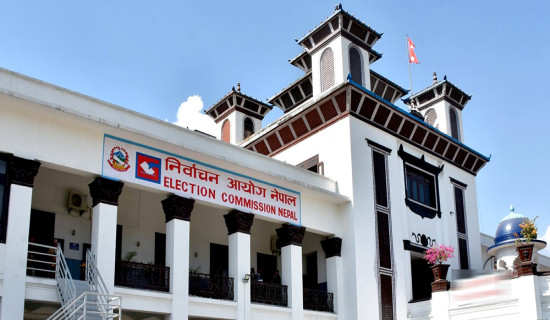
-original-thumb.jpg)

